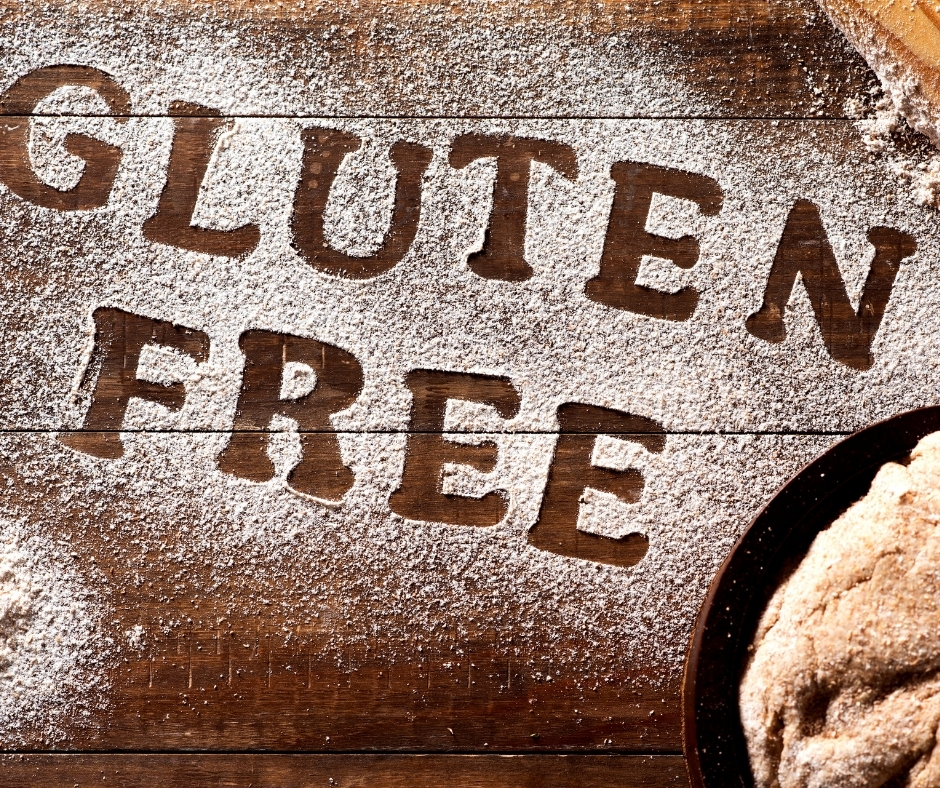Who would have thought that shampoo and gluten-free flour would ever have something in common? Though these ingredients seem unrelated, xanthan gum common ingredient in both of these items. While you may not know what xanthan gum is, you have probably eaten it before without knowing it, as it is a common food additive.
Industrial products and some food products containing xanthan gum have been associated with respiratory and digestive issues. As you can imagine, this food additive has sparked some public concern about whether xanthan gum is beneficial to humans.
Nevertheless, xanthan gum has been deemed a safe food additive by the FDA. In addition to this, xanthan gum is a popular supplement and ingredient in gluten-free products such as gluten-free all-purpose flour.
What Is Xanthan Gum?
In short, xanthan gum is a food additive that’s usually added to food products to thicken or stabilize them. Xanthum gum emerged in 1963. Since then, many scientists have researched it and deemed it safe for consumption.
Xanthan gum is manufactured through fermentation by exposing sugar to the bacteria Xanthomonas campestris. The fermentation process yields a broth and also produces a gooey textured substance that is mixed with alcohol.
This goo-like substance is then dried and transformed into a powder. When xanthan gum is exposed to liquids, it dissolves rapidly and transforms into a thick liquid. For this reason, xanthan gum is the choice thickener or stabilizer for many food manufacturers.
Despite the fact that xanthan gum is manufactured in a laboratory, it is a soluble fiber, and in essence, these fibers cannot be dissolved by the body. Soluble fibers soak up water and transform into a gel-like material in your gut which ultimately decreases digestion rate. Since xanthan gum is indigestible by the body, it is free of nutrients and calories.

What Is Xanthan Gum Used For?
Xanthan gum helps foods to remain in thier emulsified state and flow evenly when squeezed out of thier containers. In addition to this, it can stabilize food, which allows certain foods to be resistant to specific temperatures and pH levels. It’s is also the choice ingredient for gluten-free baking as it improves it replicates the fluffiness and stability of traditional wheat baked goods.
Xanthum gum is also used in the production of industrial items such as paints, fungicides, tile grout, liquids used in oil drilling, toilet bowl cleaners, herbicides, wallpaper glue, or other adhesives. In addition to this, xanthan gum may also be used in oven cleaners, insecticides, and grout. It is the ideal ingredient for industrial products because it can resist temperature and pH level fluctuations, adhere to surfaces, and solidify liquids.
Xanthan gum is also a common ingredient in personal care products such as shampoo, toothpaste, lotions, and creams. Xanthan gum also these products to have a thick consistency but still flow smoothly when squeezed out of thier containers. In addition to this, it also allows solid particles to be dissolved in liquids.

Health Benefits Of Xanthan Gum
Even though most people are skeptical about xanthan gum, it does have some potential health benefits. One animal study investigated the effects of combining xanthan gum with an intra-articular (IA) injection of allogeneic adipose tissue-derived stem cells (ADSCs) in rats with osteoarthritis.
The results showed that one dose of allogeneic ADSCs coupled with xanthan gum effectively reduced the progression of osteoarthritis. The study also showed that this combination had a remarkably greater curative effect than ADSCs or xanthan gum on its own.
This leads scientists to believe that the intra-articular injection of allogeneic adipose tissue-derived stem cells with xanthan gum could be a potential treatment for human patients with osteoarthritis. However, more research is needed to confirm this theory.
Xanthan gum may also decrease your cholesterol levels. The recommended amount of xanthan gum is 10 mg per day or 1 tablespoon if you are using it in gluten-free baked goods.
One experiment with 5 male participants ingested 15 times the daily recommended quantity of xanthan gum for 23 days. Blood tests taken following the experiment found the participant’s cholesterol levels were reduced by 10%.
Xanthan gum can also make food safer to swallow. Persons who have conditions such as multiple sclerosis or have suffered a stroke may have difficulties swallowing foods.
As mentioned above, xanthan gum thickens foods and drinks. This reduces the chances that food and drinks will accidentally end up in your lungs.
Side Effects Of Xanthum gum
In general, xanthan gum is considered safe for consumption. There is no determined standard for how much xanthan gum can be added to food.
Most people consume xanthan gum and remain unaffected. However, certain individuals may experience digestive issues if it is consumed in large amounts.
One 2012 case report investigated a product called SimplyThick, which contains xanthan gum. They discovered xanthan gum could have severe effects on infants, such as inducing necrotizing enterocolitis.
In Summation
Even though there is a lot of concern over xanthan gum, it is safe for consumption. As with any food product, too much xanthan gum is not always a good thing. Luckily you have the freedom to choose whether you consume xanthan gum or remove it from your diet.






